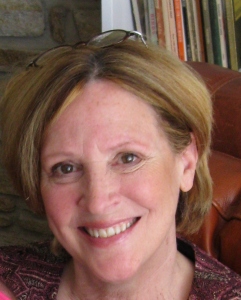Parkside Junior High School was a pretty buttoned-up place on November 22, 1963 at about 2:30 that afternoon. Another teacher knocked on our classroom door and motioned for our Social Studies teacher, Miss Foley, to come into the hall. From my seat I could see her. Her eyes went wide and she covered her mouth with her hand. This scared me because Miss Foley was not given to emotional jags of any kind. As far as we knew, she didn’t even have a first name.
I said, “Whatever it is, it’s really bad.”
There was the usual 8th grade speculation, which was never hard to come by. Craig Norton said, “I bet Russia dropped the A-Bomb.”
Then Miss Foley composed herself a little and came back inside. She abruptly handed out a ditto and told us the principal would be making an important announcement. Scary silence took over. She clearly might have begun sobbing at any second, yet no one asked what was wrong. Not one kid.
Our principal was a man of few words, and even this afternoon wasn’t going to change his style. “President Kennedy was shot in Dallas, Texas this afternoon,” he said over the loudspeaker from the office. Miss Foley, already knowing the rest of the story, put her finger to her lips and closed her eyes.
“The bullet was fatal.”
I wasn’t sure what the word fatal meant, until I turned and saw all the crying girls and the boys hitting their desks with closed fists.
By the time that word had filtered down to us in that classroom, the president had been dead for an hour.
At home, my mother was ironing. Today, thanks to You Tube videos that show the news coverage as it was unfolding on November 22, I can see exactly how the word reached her in our living room. CBS was airing As the World Turns, and two characters were talking about their upcoming Thanksgiving dinner. Without warning, the picture changed to a black screen with the word BULLETIN stamped across it in white letters. There was a ruffling of papers and then Walter Cronkite’s unmistakable voice. The first details were in audio only — the shootings of Kennedy and Governor Connally, and that they had been rushed to Parkland Hospital.
Those facts took less than a minute to deliver, and then Cronkite said: “Stay tuned to CBS News for further details.” What followed was a commercial for Nescafé Coffee, a promotion for an upcoming episode of “Route 66,” and then back to the same two soap opera characters, who were still talking about Thanksgiving dinner.
In the next hour, broadcasters rushed to get on the air, some of them out of breath, all of them male and all of them white. Some of the anchormen wore rumpled shirts and crooked ties. They ran their hands through their hair and smoked wildly as they read from sheets of paper and talked on big bulky rotary phones to reporters in Dallas.
Sometimes my knees ache, and that makes me feel old. I just realized my oldest grandson will be 9 in December, and that makes me feel old. But watching this archival film makes me feel like I must have lived in the Dark Ages. Fifty years ago I sat in the middle of a news blackout — unheard of today — waiting to hear what had gone terribly wrong in the world. And it took the media most of the afternoon to get the word out in any meaningful detail.
Compare that to this week when violence erupted in Baltimore, where I live, and all at once we were enveloped in every detail in real time. We could watch footage live from different locations at the same moment thanks to split screens. We had close-ups of it all, the tension, the anger, the fear. We could listen to debates — almost immediately as the situation unfolded — about whether these people were protestors, thugs, criminals, or high school students. Everything was broken down instantly, even semantics.
It’s good to have more information than less, I tell myself. It’s better to be able to access what I need to know instantly than to wade through those dribs and drabs that came in black and white from Dallas in 1963. We put up with the excruciating slowness of it all not realizing it was frustrating at all. And I can almost smile, even on this horrible day, to think that if anyone in Parkside Junior High School had suggested that someday we’d be watching live feed on our phones, it would have been a fast track for a visit with the School Psychologist.
But that’s not the whole answer. Watch the You Tube video of November 22, of Walter Cronkite putting his glasses down and letting the words that the president had died get caught in his throat and swallow hard. Watch his eyes well up, just for an instant, before he gets to his next sentence. We may never see a moment like that again. The race to get it first is just too intense.
I sit at my laptop, and with a few clicks I see what has happened in Baltimore and in the world in the last hour. One hour — the same amount of time it took the scared kids in that classroom to find out what had upset their teacher so badly.
There are advantages to having one foot in each century, and I’m okay with that.

